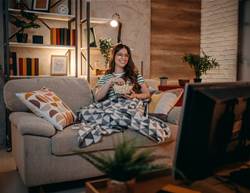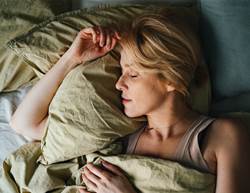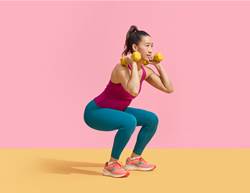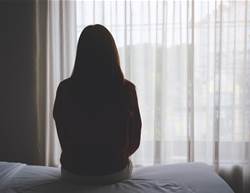Sweeping into the Prevention photo shoot having just navigated school drop-offs, mufti days and every other aspect of the mad morning juggle, Sarah Harris emanates the trademark down-to-earth openness and humour that makes her such a well-loved TV host and skilled interviewer. Warm, relatable and real, she feels just like ‘one of us’.
Admittedly, though, most of us aren’t jet-setting between states on a weekly basis to co-host a national news program that beams into living rooms six nights a week. The 43-year-old admits that if she thinks too hard about just what her typical week entails, she freaks out. “You have to take it literally day by day, hour by hour, minute by minute,” she says.
Here’s a snapshot of Sarah’s week: “Monday mornings, I drop the kids [sons Paul, seven, and Harry, five] at school, drive home, get picked up, go to the airport, fly to Melbourne and go straight to the station, head to make-up, then meetings, voices, pre-records, record the show… then I could have other interviews after the show or before the following day’s show. I’m in Melbourne for three days, then, as soon as the show closes on Wednesday, I jump straight back on a plane and head home, in bed by 11.30pm. And then it’s mostly ‘mum mode’, but I work from Sydney as well, doing feature stories and things like that, and on Sunday I’m in the studio in Sydney, too.”
Anyone else feel the need for a lie-down after that? Sarah admits the dual aspects of her life are bizarrely contradictory. “It’s kind of wild: one minute you’re on the desk, talking to the prime minister with your hair all primped, being prodded under heavy lights. The next minute, I’m just mum, wearing daggy activewear with holes in it, hair scraped back into a bun, running to soccer training, reading groups, helping with the school fete.” She smiles warmly. “But that gives me so much joy. Life’s what happens in those smaller moments being with my babies, my boys.”

Working with purpose
As two years as co-host on Network 10’s popular news panel show The Project, following nine years as co-host of Studio 10, Sarah is relishing the variety of her work day. While she concedes that chatting to celebrities is great fun, it’s the everyday Australians whose paths she crosses who really give her work meaning and purpose.
“I spoke to an amazing dad, Wayne, who lost his son to suicide because he had been extorted on social media,” she recalls. “It was such an honour to tell his story. I cried with him on the shoot, and I still keep in contact with him. To see this ordinary dad, someone you’ve just met, sitting across from you and baring their soul, using his grief to do extraordinary things to warn other parents about the dangers of social media… I look at parents like that and go, ‘I don’t know if I’d have the strength to do that.’ That kind of extraordinary spirit blows me away.”
When she’s grappling with long hours or heart-wrenching absences from her kids, Sarah says stories like Wayne’s “make you realise you’re on the right path; you’re where you need to be.”
Sarah adds that the challenges of the job are also tempered by her close friendships with her Project co-hosts, including Sam Taunton, Waleed Aly and Georgie Tunny. (“Georgie’s like my work wife. I adore her,” Sarah enthuses.)
“It’s tricky to find people with chemistry in TV and people you genuinely like – and I think people can always tell when people don’t like each other! But we do; we genuinely adore each other.”
A challenging project
All that being said, Sarah admits that her first year on the job was a self-confessed “trial by fire” that took its toll both physically and mentally.
“When something’s new, you have to commit fully,” she says. “I had just run hard the full year. I got to the end of last year, and I had, like, a spasming eye; I had so much [stress hormone] cortisol. I wasn’t making time to exercise, I was just trying to do as much as I could work wise. I couldn’t drop the ball when I was with the boys either, because they want their mum, and that’s my other important job. And I was just spent.”
Sarah says one of the biggest lessons she’s learnt of late is to become more aware of her needs, and after that taxing first year, she made a commitment to put those “little moments” back into her life, “making sure I go for a walk to bring my stress levels down, sleeping well, nourishing my body with food and taking some time for me. Making sure I’m not living on a diet of Diet Coke and coffee!” (She is drinking a Diet Coke as she says this, laughing that she is still a work in progress.)
Her motivation, she says, is not so much about appearance (“I’ve had two kids, I’m never gonna be Naomi Campbell!”), but functionality. “Like, I actually need to eat vegetables if I’m going to do this job, look after these kids and have my life crisscrossing two states. It’s literally putting fuel in the tank. You wouldn’t flog the guts out of a car with no fuel in it, but I feel like I was doing that last year.”
Clearing her head
Sarah says looking after herself can also be as simple as avoiding ‘doomscrolling’ on social media (“you want that cheap hit of dopamine to make yourself feel better, but afterwards you just feel empty”), or going for a long walk. The latter is something she does every Sunday with her ex-husband, Tom Ward (the couple parted ways in 2021 after seven years of marriage, but remain good friends and committed co-parents). “We catch up on the week ahead or what’s happened in the past week, and talk about the boys. Just talk.”
Solo walks are also a beneficial tool for Sarah to clear her head. “I try to do it without headphones as well, to make myself present,” she says. “Look at the sky, listen to the birds, be in the moment rather than getting stuck in the future or the past.” When she does have her headphones on, Sarah says listening to binaural beats on the app BrainWave has been a great aid for alleviating stress. “[Comedian and presenter] Merrick Watts put me on to it!” she shares.
Becoming more attuned to her needs has also given Sarah the insight that what may have worked in the past is not necessarily the best thing for her now. “I used to be a runner, but I found it was making me more anxious,” she reveals. “So, I’ve switched it up to doing more weights this year, and that’s kept me more mellow and a bit more centred and grounded.”
Analysing anxiety
Sarah has been open about her battles with anxiety over the years, something she admits she needs to be even more vigilant about now that she’s embarking on the perimenopausal journey (citing symptoms such as night sweats, hair coming out in clumps and “PMS getting wilder and wilder”).
Sarah says regular therapy has been essential for supporting her mental health, while acknowledging that it’s a privilege not accessible to all. “It’s so prohibitively expensive for a lot of people to go.” She’s also circumspect on how living with anxiety has influenced her life in both positive and negative ways.
“It’s funny, because in some ways anxiety and perfectionism is probably what got me to where I am, but it can also destroy you. At times it almost did destroy me,” she shares. “I was so hard on myself; nothing was ever good enough. That carried on through school, into my work, if I missed an interview… I didn’t like myself very much. And you can’t go around hating yourself.”
Sarah says even the nastiest of comments she’s read about herself on social media (another thing she’s trying hard not to do) pale in comparison to the harsh self-talk she has administered over the years. “I’ve got Shame FM on 24/7 in my brain, and it’s learning to turn that off and harness it, and taking the good parts about that perfectionism – working hard, having high standards for yourself – but also, if you fail, or something goes wrong, to run with it. That’s what life is, right, how you react to those situations.”
She pauses and laughs. “I’ve read a lot of therapy books. In fact, I was in a therapy session yesterday, and my therapist said, ‘You’ve got to stop intellectualising so much… you don’t have to win at therapy!’ And I’m like, ‘Okay, yes, I know… but I just want to be really good at it!’”
Aha moments
Being a legend at therapy has also provided Sarah with the self-realisation of just how much she’s grown. “I think I’m better at standing up for myself in everything,” she says. “When you’ve done therapy for as long as I have, you do start to have, as Oprah calls them, those ‘aha’ moments where you watch yourself react to something and go, ‘Oh, I would’ve reacted so differently three or four years ago.’”
She gives the example of how, like many women, she’s always been a big people pleaser – “we always want to make everyone happy, don’t want to make anyone uncomfortable, don’t want to make a fuss. Now, I’ve flipped the script and instead of asking, ‘Did they like me?’, it’s, well, ‘Do I like them? Do I like this situation?’ You still handle it with grace, of course, but when you start thinking that way, it’s pretty freeing.”
Sarah also credits her “beautiful boys” with helping her grow and find herself in many different ways. She’s determined to instill in them “to always laugh and be silly and be fun,” a reflection of the challenges she faced being “such a serious kid” who was “so hard on myself”.
“I’m really big on teaching the kids that you don’t have to be the smartest kid in the room,” she says. “You don’t have to be the best. You have to give it a go, give it your all and try in life. That’s the most important thing. By the same token, they’ve definitely taught me that life doesn’t have to be perfect, so they’re teaching me and I’m teaching them. It’s pretty nice.”
The Project airs Sunday to Friday on 10 and 10 Play.
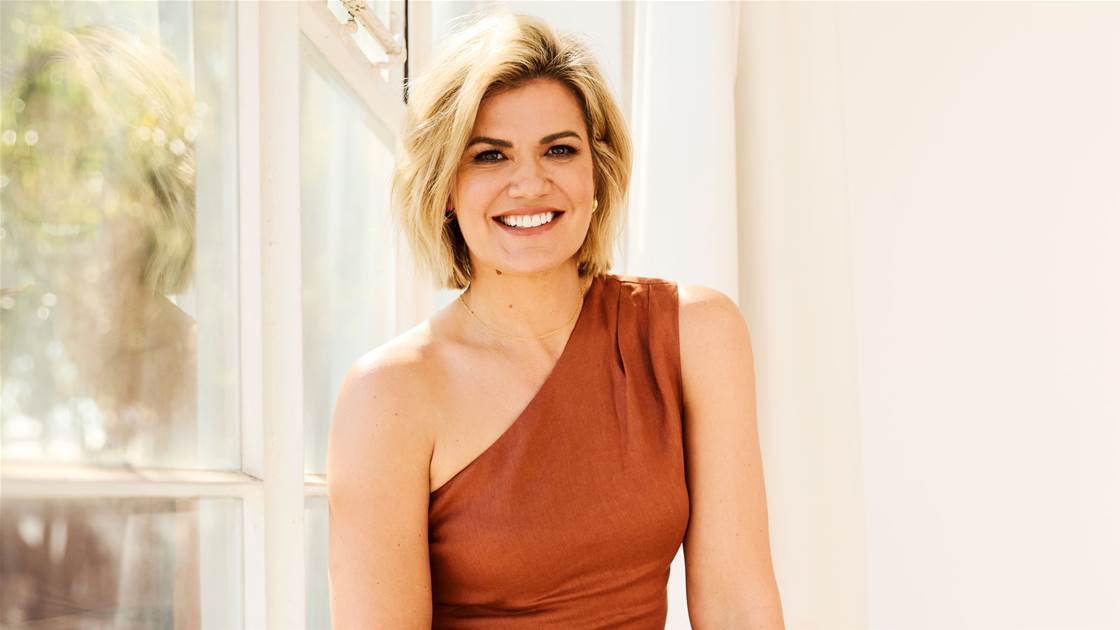


.jpg&h=90&w=90&c=1&s=1)


